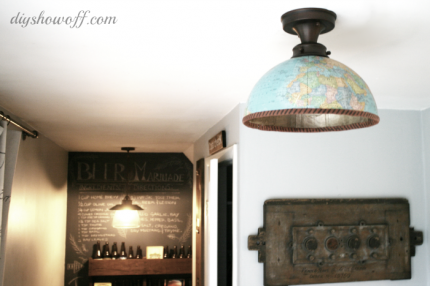
I’ve seen something similar to this on Pinterest but could never find the source. I have it on my to-do list but haven’t gotten around to it yet. Then I saw this fabulous tutorial! Check out this step by step for turning a globe into a light fixture — DIY Globe Light Fixture | DIY Show Off ™ – DIY Decorating and Home Improvement Blog.

This rocks! Thanks for sharing.